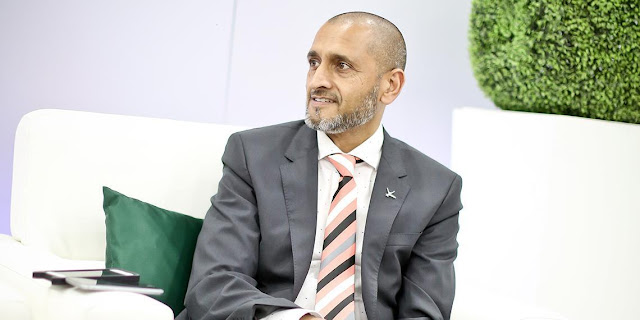
Living in a big city has its many advantages, among the most notable being connection to high speed internet. However, this privilege often renders one blind to the realities in other parts of the country that are remote and lacking what those in the city assume as a right. One of the main challenges to internet penetration in rural Kenya is the lack of supporting infrastructure on the ground.
This means that a large population that is computer and internet-savvy is denied the economic opportunities that come with a good broadband connection. Satellite broadband therefore comes as a much needed answer to this connectivity problem in such areas. In this interview, Yahsat's Chief Commercial Officer Farhad Khan sheds light into how the adoption and implementation of satellite broadband will solve this perennial problem.
TBK: While we are seeing greater connectivity across Kenya, do you think government and private sector IT leaders are doing enough to bridge the internet gap?
Kenya is currently implementing the “National Broadband Strategy” launched in 2013 which has pushed broadband penetration to 34%, according to the Communications Authority of Kenya. This type of initiative is a step in the right direction. Building further partnerships between governments, technology companies and the private sector will be key to expanding the benefits of broadband connectivity to underserved and unserved communities. We firmly back these efforts and look forward to more people enjoying connectivity in the years to come.
TBK: What are the global trends in satellite broadband penetration that Kenyan organisations and government institutions should get inspiration from?
Satellite broadband is reaching users in the remotest parts of the world and facilitating social development in innovative and creative ways. For instance, over the past years, we have seen a marked shift in governments moving toward e-services which the public can access due to reliable broadband connectivity.
This transition, however, has been slower across many countries in Africa because of the lack of on-ground infrastructure for broadband connectivity. Adopting satellite broadband, which is independent of terrestrial network to provide high-speed connectivity can be one of the keys to placing previously remote communities in Kenya at the heart of the next generation of socio-economic development.
TBK: The internet/ICT sector in Kenya requires vigorous and timely innovation. How is Yahsat responding to this and how does it inspire its current consumers?
YahClick is the first satellite broadband service in Africa to offer home users and business broadband connectivity through Ka-band multi-spot beams. The technology enables our high throughput satellites to use multi-spot beam payload and offer multiple advantages to our partners and users including; requirement of a smaller antenna size and lower power radio transmitter, which results in lower equipment costs, faster and more reliable internet access speeds and increased throughput.
TBK: What do you see as the biggest challenges for satellite broadband in the immediate and long term?
In terms of telecommunications infrastructure, Kenya faces a significant challenge to connect all the population with quality broadband in the suburbs of major cities, smaller towns and the rural areas. Satellite broadband services like YahClick provide a viable solution and opportunity to cater to the increasing internet demand from a growing population. Working with companies like Yahsat and other private sector enterprise, the government is going to have to form strong working partnerships in order to extend the benefits of connectivity to those currently without access.
TBK: What role should broadband play in Africa's development if the continent is to achieve its economic growth prospects?
Satellite broadband has the potential to jumpstart the process of giving communities, especially rural ones, access to basic services, and changing the way they share knowledge and information, network socially, access government services, educate their children, access local and international markets for their goods and maintain good health.
Satellite broadband has the potential to jumpstart the process of giving communities, especially rural ones, access to basic services, and changing the way they share knowledge and information, network socially, access government services, educate their children, access local and international markets for their goods and maintain good health.
We believe this is just the start of what a digital economy can achieve in Africa and believe it should be something that is at the heart of any economic strategy key stakeholders on the continent are producing.
TBK: What issues do you see as being critical for Yahsat over the next decade? What in particular will affect Kenya?
As the number one Ka – Band satellite operator in Africa, our focus is on maintaining and building on that position. A big part of this will be the launch of Al Yah 3, which will extend our coverage to an additional 20 markets reaching 60% of Africa’s population.
We like to think of ourselves as enablers for socio-economic progress. In Kenya specifically, we are looking at providing one stop solutions that not only provide connectivity but also provide fully integrated e-education and e-health solutions.











No comments:
Post a Comment